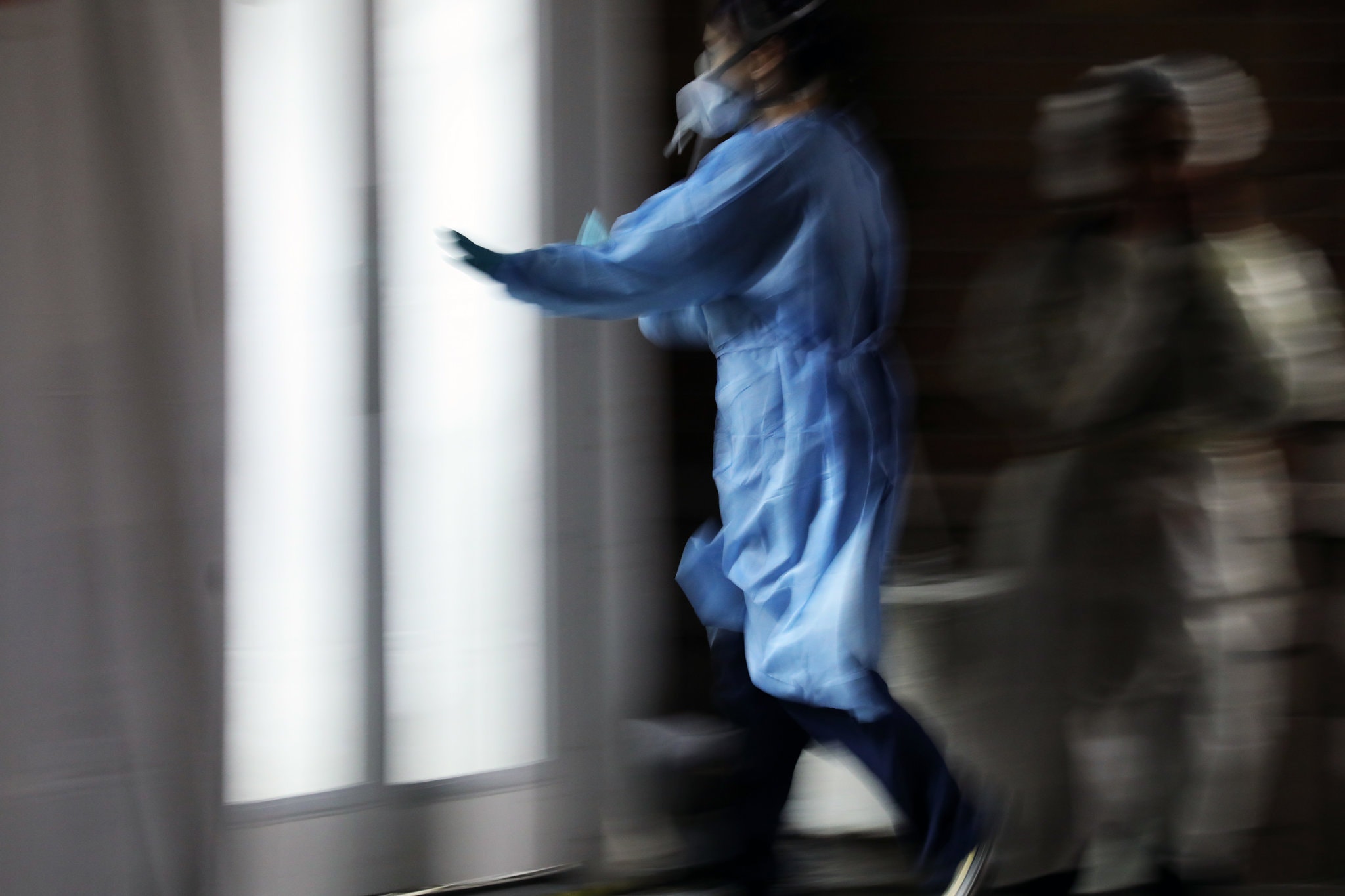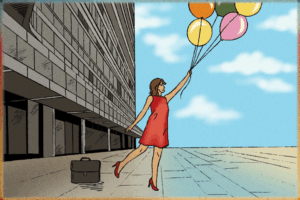HOUSTON — “Can you hear that?” my son, Sam, asked me a month or so ago, interrupting our conversation to hold his phone up to his open car window. “It’s for essential workers.”
By now you know what “that” was — people beating on pots and pans, honking horns and cheering from their windows, balconies, stoops and streets, often against a background of sirens. Sam said it so matter-of-factly that it took me a few seconds to remember that he was someone they were cheering for. He’s a nurse at a Manhattan hospital, one that has been, since early March, all coronavirus, all the time.
When I was pregnant with Sam during the Persian Gulf war, I often watched TV news and wondered what it would be like to have a son in combat. I wasn’t sure how or whether I could stand the daily terror of knowing that my child could be taken from me at any moment, in a faraway place by an unseen enemy.
To be sure, bullets aren’t whizzing around Sam’s head and he isn’t dodging I.E.D.s, but for the past couple of months I have been living with the grinding knowledge that he is exposed daily to a mysterious and relentless virus — and that sometimes he works without proper equipment and always without the federal government having his back. Knowing that Covid-19 is more likely to be fatal to the elderly than the young and strong is cold comfort, given that multiple exposure is another good way to get sick.
In the beginning, I tried for some semblance of maternal control. It was in March — has it really only been a couple of months? — that I sent him the N95 masks a prescient friend had urged me to buy for myself in January; I was worried that Sam’s hospital wouldn’t have enough. (“All my patients have coronavirus,” he texted me on the 19th of that month.)
Things got worse seemingly overnight. Those were the days when Sam told my husband and me that he was seeing more intubated patients in a day than he had in the previous nine months. He said that he sought counsel from a supervisor because he couldn’t give his patients the attention they deserved — there were just so many of them, and they were all so ill. Sam told me he missed the days when he had time to wheel a cranky patient outside for a bit of air.
My Texas kid used to entertain us with perfect imitations of New York accents, but not anymore. Instead, he was holding cellphones for frightened, lonely patients desperate to FaceTime their families.
If the ensuing time has been surreal for Sam, it has been for my husband and me, too. “Mimi’s son is on the front lines,” I overheard a friend say, with a mixture of admiration and pity, before we all went into lockdown here in Houston. The first question people ask when calling to check in is “How is Sam?” They send him mail-order tamales and homemade chocolate chip bars, and they tell me he is a hero, which is all very kind but also rends the blanket of denial I keep trying to wrap myself in. Sam tells me to tell people that really, he doesn’t need anything, and I tell him to take the gifts that are offered, that other people need to feel like they are doing something, even if it is helping the helpers. Few can resist military metaphors: “He’s probably having the time of his life,” another friend suggested. “This is what he signed up for.”
There is some truth to that. He loves his work, which is a comfort in itself. One day Sam says he wants to study more epidemiology; another he is intrigued by some similarities between the lungs of Covid-19 patients and AIDS patients. He is overwhelmed by the generosity of the hospital’s pulmonologists, who, before visiting a patient’s room, ask Sam whether they can spare him a trip by picking up some of his duties.
He manages his mom, too: “If you are anxious, remember: This is my shit,” Sam texted me a few weeks ago, reminding me he’d decided to become a nurse when Hurricane Sandy hit the hospital where he was working in 2012. Back then he helped carry out the bodies of the dead after the hospital lost power. “The generators are always in the basement,” Sam reminded me the other day, sharing the metaphor that deftly describes much of his life as a millennial.
We are both developing the body armor necessary for his chosen career. “Holding up OK!” he texted recently, responding to one of my texts. “The newest gowns we got fit me like a cocktail dress, but honestly, we’re all getting exposed so much that it’s like, whatever.”
I’ve adapted, worrying only when I don’t hear from Sam every few days. Knowing that, he usually calls when he is driving to work up the East Side in the early evening for his shift. Sam turns his phone around so that I can see the eerie, empty streets, and then flips it back again, and I can see just how tired my sweet, handsome son looks on any given day. We joke about the beard that hospital rules forced him to lose — no good seal with a mask — and the unflattering (to his mom) mustache he got to keep.
So now I know what so many wartime mothers before me have known: I don’t need a hero. I just want my child home, safe and well.




